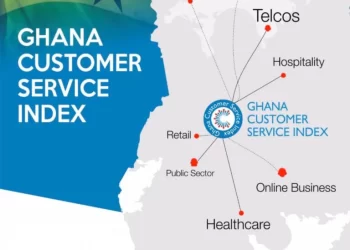The Bank of Ghana’s (BoG’s) decision to withdraw over GH₵60 billion from circulation in a bid to contain inflation has come under heavy fire from the Minority in Parliament, which is describing the policy as counterproductive and inimical to Ghana’s fragile economic recovery.
The Ranking Member on the Economy and Development Committee, Kojo Oppong Nkrumah, who is also the MP for Ofoase Ayirebi, has cautioned that the scale of the sterilisation undermines productivity, restricts private sector growth, and deprives businesses of desperately needed capital.
A massive liquidity squeeze
According to Mr. Oppong Nkrumah, the Central Bank has admitted that since January 2025, it has sterilised more than GH₵60 billion from the economy under the assumption that Ghana was suffering from excess liquidity.
Sterilisation, in monetary policy terms, means withdrawing excess money supply from the system in order to reduce inflationary pressures.
The theory is straightforward: when disposable cash is scarce, consumer demand falls, which in turn slows down price increases.
But the Minority argues that the Bank of Ghana’s approach is not only excessive but also dangerous.
The sterilised amount, the Minority noted, is nearly half of the entire market capitalisation of the Ghana Stock Exchange, which currently stands at just above GH₵130 billion.
“This is not a trivial amount. If you sterilise GHS62 billion and compare it to the stock market capitalisation, you begin to understand the scale of the problem. We cannot just continue packing liquidity at the Bank of Ghana while businesses starve of capital,” Mr. Oppong Nkrumah stressed.
Artificial inflation control, real economic pain
While the BoG insists that sterilisation has helped to ease inflationary pressure, the Minority insists this is only a short-term fix that comes at a long-term cost.
Oppong Nkrumah explained that once sterilised funds are eventually released back into the system, the very inflation the Bank is trying to suppress will resurface.
“This old economic orthodoxy of just sterilising money and packing it at the Bank of Ghana is not sustainable. Eventually, when you release that money back into the economy, inflation will pick up again,” he said.
The Minority contends that instead of passively withdrawing liquidity, the Central Bank should explore mechanisms that not only fight inflation but also stimulate investment, create jobs, and grow the productive sectors of the economy.
Businesses starved of capital
Critics argue that the sterilisation is worsening the already dire financing environment in Ghana.
With commercial lending rates averaging well above 30 per cent, most businesses — especially small and medium-sized enterprises (SMEs) — have little access to affordable credit.
The massive liquidity mop-up, in the Minority’s view, is choking the economy further.
Entrepreneurs who could otherwise expand operations, invest in technology, or hire more workers are instead facing a credit drought.
“This policy is costing us jobs and growth. When you lock up this amount of money at the Central Bank, you starve the private sector, which is the real engine of growth,” Oppong Nkrumah cautioned.
A call for innovation
The Minority’s proposal is that part of the sterilised funds be diverted into productive investment vehicles such as the Venture Capital Trust Fund.
The Fund, established under President Kufuor, was designed to provide equity financing for startups and small businesses.
Unlike loans from commercial banks, equity financing allows entrepreneurs to secure capital without the immediate burden of interest payments.
“Young people with great business ideas could have access to this equity capital. If these funds go into the Venture Capital Trust Fund, they can be deployed to help entrepreneurs expand their operations, create jobs, and grow the economy. That is far more beneficial than simply sterilising liquidity,” Mr. Oppong Nkrumah suggested.
He also floated the idea of channelling some of the funds into the Ghana Stock Exchange to provide zero-coupon equity financing for existing businesses, thereby boosting production capacity and employment.
Implications for growth and stability
Economists warn that while sterilization can stabilize prices in the short run, it comes at the cost of stifling economic dynamism.
By locking up capital in non-productive instruments, the Bank of Ghana may inadvertently deepen Ghana’s unemployment crisis, reduce consumer confidence, and undermine private sector confidence.
Furthermore, given the size of the sterilised funds relative to the scale of the domestic financial market, there are fears that the policy could distort liquidity conditions and worsen credit accessibility across the banking sector.
In effect, BoG’s attempt to curb inflation may be sowing the seeds of anaemic growth, with lasting consequences for economic recovery.
Searching for balance
Oppong Nkrumah insists that Ghana must move beyond “old orthodoxy” and adopt a balanced, innovative approach that manages inflation without undermining growth.
“What we need is a broader and better strategy that supports growth while managing inflation,” he stressed, adding that simply mopping up liquidity without parallel growth-enhancing measures is short-sighted.
The Minority is urging government and policymakers to rethink the scale and design of the sterilisation program, warning that without change, Ghana risks trading temporary inflation control for long-term economic stagnation.












